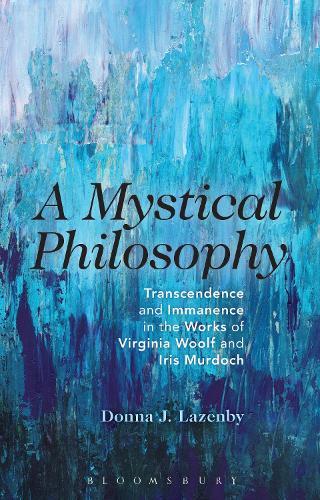Overview
Revealing, in an original and provocative study, the mystical contents of the works of famous atheists Virginia Woolf and Iris Murdoch, Donna Lazenby shows how these thinkers' refusal to construe worldviews on available reductive models brought them to offer radically alternative pictures of life which maintain its mysteriousness, and promote a mystical way of knowing. A Mystical Philosophy contributes to the contemporary resurgence of interest in Spirituality, but from an entirely new direction. This book provides a warning against reductive scientific and philosophical models that impoverish our understanding of ourselves and the world, and a powerful endorsement of ways of knowing that give art, and a restored concept of contemplation, their consummative place.
Full Product Details
Author: Donna J. Lazenby (University of Cambridge, UK)
Publisher: Bloomsbury Publishing PLC
Imprint: Bloomsbury Academic
Dimensions:
Width: 13.80cm
, Height: 1.80cm
, Length: 21.60cm
Weight: 0.399kg
ISBN: 9781474242042
ISBN 10: 1474242049
Pages: 344
Publication Date: 30 July 2015
Audience:
College/higher education
,
Professional and scholarly
,
Tertiary & Higher Education
,
Professional & Vocational
Format: Paperback
Publisher's Status: Active
Availability: Manufactured on demand

We will order this item for you from a manufactured on demand supplier.
Reviews
In this engaging study, Donna Lazenby indicates both the promise and the limits of post-Christian attempts to grasp the mystical. While Woolf's immanence hesitates between a projection of self and a loss of self in relation to the horizon of nature, Murdoch's ethical transcendence hesitates between a realism requiring transcendence and a mere transcendentalism that would after all abolish it. Negatively, this indicates our need for a contemporary reworking of a more traditional real transcendence which would also be an immanence, and so save the self in losing it. This work points the way in that direction with elegance and originality. -- Catherine Pickstock, Reader in Philosophy and Theology, University of Cambridge, UK
[A] valuable read for philosophers of religion, theologians, and ... literary scholars. * Religious Studies Review * In this engaging study, Donna Lazenby indicates both the promise and the limits of post-Christian attempts to grasp the mystical. While Woolf's immanence hesitates between a projection of self and a loss of self in relation to the horizon of nature, Murdoch's ethical transcendence hesitates between a realism requiring transcendence and a mere transcendentalism that would after all abolish it. Negatively, this indicates our need for a contemporary reworking of a more traditional real transcendence which would also be an immanence, and so save the self in losing it. This work points the way in that direction with elegance and originality. -- Catherine Pickstock, Reader in Philosophy and Theology, University of Cambridge, UK
[A] valuable read for philosophers of religion, theologians, and … literary scholars. * Religious Studies Review * In this engaging study, Donna Lazenby indicates both the promise and the limits of post-Christian attempts to grasp the mystical. While Woolf's immanence hesitates between a projection of self and a loss of self in relation to the horizon of nature, Murdoch's ethical transcendence hesitates between a realism requiring transcendence and a mere transcendentalism that would after all abolish it. Negatively, this indicates our need for a contemporary reworking of a more traditional real transcendence which would also be an immanence, and so save the self in losing it. This work points the way in that direction with elegance and originality. -- Catherine Pickstock, Reader in Philosophy and Theology, University of Cambridge, UK
Author Information
Donna J. Lazenby is an Anglican Priest. She has a PhD in Theology from Cambridge University, UK which won The John Templeton Award for Theological Promise 2011. Her current research is on conceptions of Life, Death and Afterlife in the contemporary Imagination, as revealed through popular culture and literary fiction.




